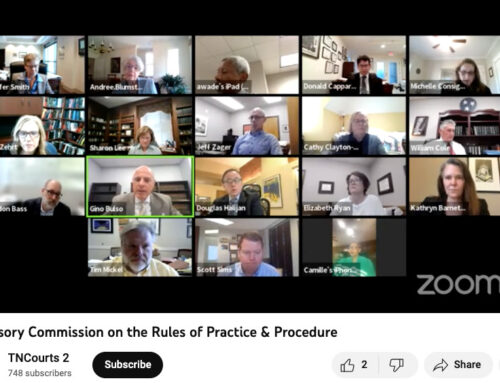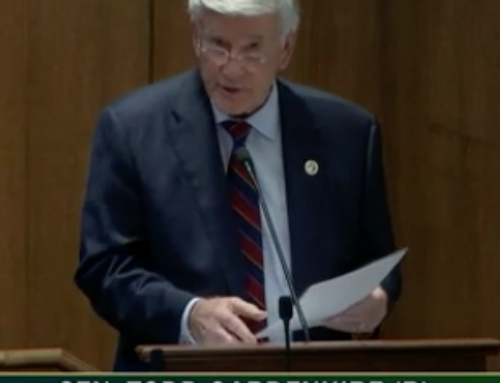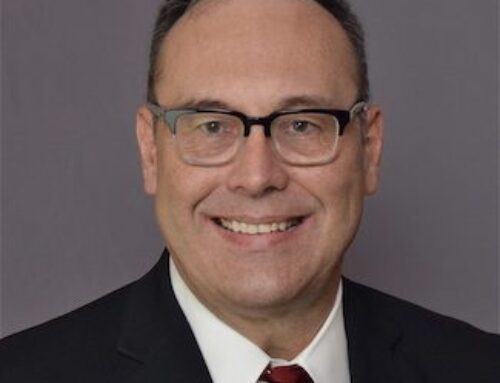Chancellor Ellen Lyle is scheduled to hear arguments today in an open meetings lawsuit filed by several news media organizations and Tennessee Coalition for Open Government against the Tennessee Registry of Election Finance.

The plaintiffs argue in The Associated Press, et al., v. The Tennessee Registry of Election Finance that the election finance board violated the open meetings law when it voted on reducing $65,000 in civil penalties that it had levied against Rep. Joe Towns, D-Memphis. The penalties had accumulated over two years as Towns repeatedly failed to file campaign finance disclosures required by law.
The board took the vote by email to settle the penalties for $20,900. The vote did not take place in a meeting open to the public, nor was public notice given for the meeting.
The hearing starts at 10 a.m. today in Nashville and will be conducted via Zoom. The proceeding will be streamed live on Chancellor Lyle’s YouTube channel.
The election finance board, composed of six members, argues that its vote to accept Towns’ settlement offer to reduce the fines had no binding effect and because it was a non-binding vote, the vote did not have to take place in a public meeting under the Open Meetings Act.
The finance board argues that only the Attorney General has the power to reduce unpaid fines levied by the registry finance board, not the registry finance board. The Attorney General is representing the election finance board in the open meetings lawsuit. It also represents the board in seeking to collect unpaid fines.
The plaintiffs, represented by attorney Paul McAdoo, an attorney with the Reporters Committee for Freedom of the Press, argue that it does not matter whether the vote was binding or not.
“To the contrary, the OMA makes clear that a ‘meeting’ occurs when a governing body makes a decision or deliberates toward a decision ‘on any matter.‘ Tenn. Code § 8-44-102(b)(2)”.
But McAdoo also argues in his brief that the registry does have the power to settle the civil penalties it levies and that the registry’s independence would be undermined if the Attorney General had the unilateral authority to settle civil penalties.
McAdoo noted Tennessee law about the Registry’s power to “ensure enforcement” of specific campaign and financial disclosure statues. He also outlined in his brief how the Registry’s own actions belie their argument that their vote did not matter.
“Defendants’ argument that it is the Attorney General who has the sole authority to settle civil penalties levied by the Registry is also at odds with the Defendants’ actions in this case and in past cases.”
McAdoo cited Registry Director Bill Young’s own email indicating that the “[t]he Registry Board has now voted via email 4-2 to accept Representative Towns’ counsel’s settlement proposal” and “this matter is now resolved, meaning that Joe Towns is no longer disqualified from running for re-election to his Tennessee House seat.”
“Even the language used by Director (Bill) Young and Mr. (Doug) Himes in their Declarations in support of Defendants’ Motion supports that the Registry’s vote was not merely a recommendation, but instead was a decision whether to approve or accept the settlement proposal from Representative Towns. Neither of them uses ‘recommend’ as the Defendants did in their Answer; instead, they both refer to the actions of the Registry at the cure meeting as either approving or accepting the offer from Representative Towns.”
(After the open meetings lawsuit was filed, the registry board in a subsequent meeting re-voted on the acceptance of the Towns’ settlement offer as a way to try to “cure” the open meetings violation.)
McAdoo also points out that the Registry Board in a June 2017 meeting voted to allow its director to sign off on settlement offers that reduced penalties by less than 50%, but require that any civil penalty more than 50% be brought by the Attorney General to the board for a decision.
McAdoo also argues that the email vote was a violation of the Open Meetings Act because the law specifically prohibits use of electronic communication and informal assemblages “to decide or deliberate public business in circumvention of the spirit or requirements” of the Open Meetings Act.
The registry board also argues that the case is moot because it took action in June to vote again to accept Towns’ settlement offer.
But the lawsuit did not seek to nullify the registry’s action. It seeks an injunction against the registry board and court oversight for a year to ensure the board does not continue to violate the open meetings law.
The plaintiffs have asked Lyle to rule that the registry board violated the Open Meetings Act based on the pleadings.




